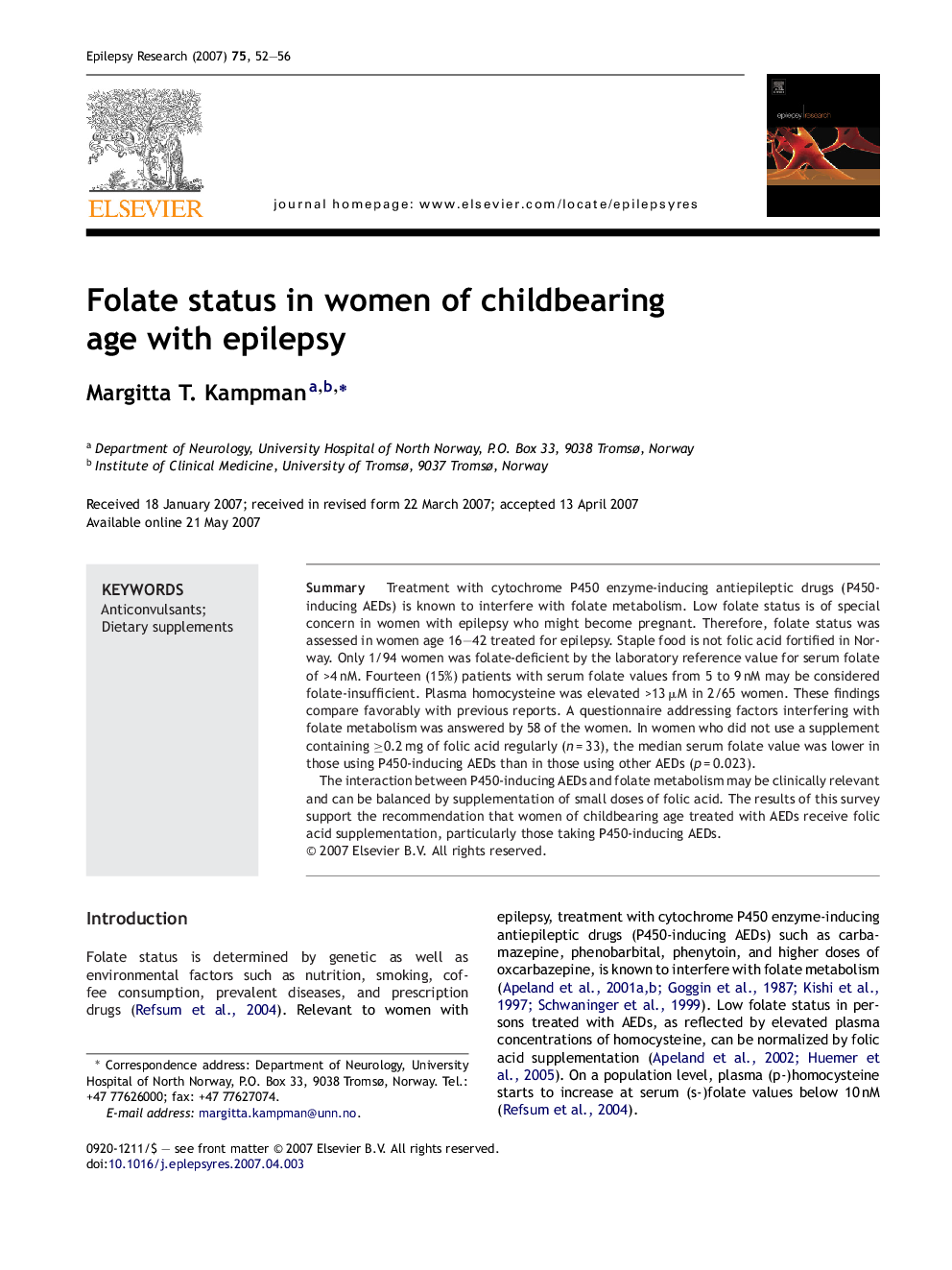| کد مقاله | کد نشریه | سال انتشار | مقاله انگلیسی | نسخه تمام متن |
|---|---|---|---|---|
| 3053113 | 1186143 | 2007 | 5 صفحه PDF | دانلود رایگان |

SummaryTreatment with cytochrome P450 enzyme-inducing antiepileptic drugs (P450-inducing AEDs) is known to interfere with folate metabolism. Low folate status is of special concern in women with epilepsy who might become pregnant. Therefore, folate status was assessed in women age 16–42 treated for epilepsy. Staple food is not folic acid fortified in Norway. Only 1/94 women was folate-deficient by the laboratory reference value for serum folate of >4 nM. Fourteen (15%) patients with serum folate values from 5 to 9 nM may be considered folate-insufficient. Plasma homocysteine was elevated >13 μM in 2/65 women. These findings compare favorably with previous reports. A questionnaire addressing factors interfering with folate metabolism was answered by 58 of the women. In women who did not use a supplement containing ≥0.2 mg of folic acid regularly (n = 33), the median serum folate value was lower in those using P450-inducing AEDs than in those using other AEDs (p = 0.023).The interaction between P450-inducing AEDs and folate metabolism may be clinically relevant and can be balanced by supplementation of small doses of folic acid. The results of this survey support the recommendation that women of childbearing age treated with AEDs receive folic acid supplementation, particularly those taking P450-inducing AEDs.
Journal: Epilepsy Research - Volume 75, Issue 1, June 2007, Pages 52–56